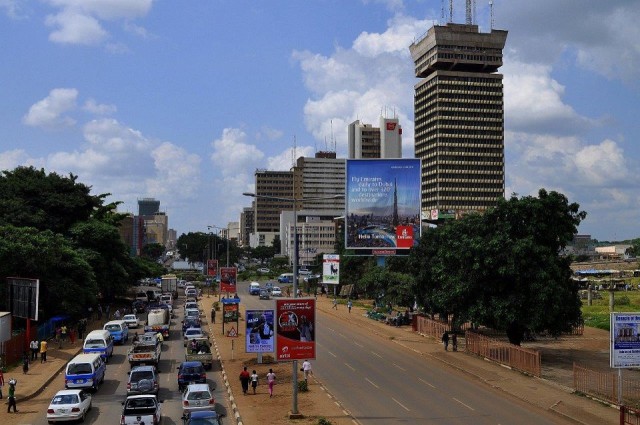Lusaka
Lusaka, the capital of ZAMBIA, is a sprawling city of about 1.5 million people located in an agricultural region. A financial and commercial center, the city lies at the junction of major rail lines heading to the Copper Belt, the city of Livingstone, and TANZANIA.
Lusaka became the capital of the British colony of Northern Rhodesia in 1935. The city's architecture and design were meant to demonstrate European dominance and to serve as a symbol of the authority and dignity of the British monarchy.
During the colonial period Lusaka was a hub of opposition to British rule. In 1948 various African leaders met there and established the Northern Rhodesia African Congress, a group that worked for African rights and independence. In 1960 Lusaka was the center of a campaign of civil disobedience aimed at undermining the Central African Confederation of the colonies of Northern Rhodesia, Southern Rhodesia, and Nyasaland, which the British had established in 1953. This campaign led to the breakup of the confederation in 1963 and to Zambia's independence a year later. Lusaka remained the capital of the newly independent nation.

In the 1970s and 1980s Lusaka served as headquarters of the African National Congress and other groups involved in fighting white-dominated governments in SOUTH AFRICA, ZIMBABWE, and MOZAMBIQUE. The city's role as a center of opposition to white rule faded in later years as black Africans took power in those three countries. Among the biggest challenges facing Lusaka today are rapid population growth and economic development.